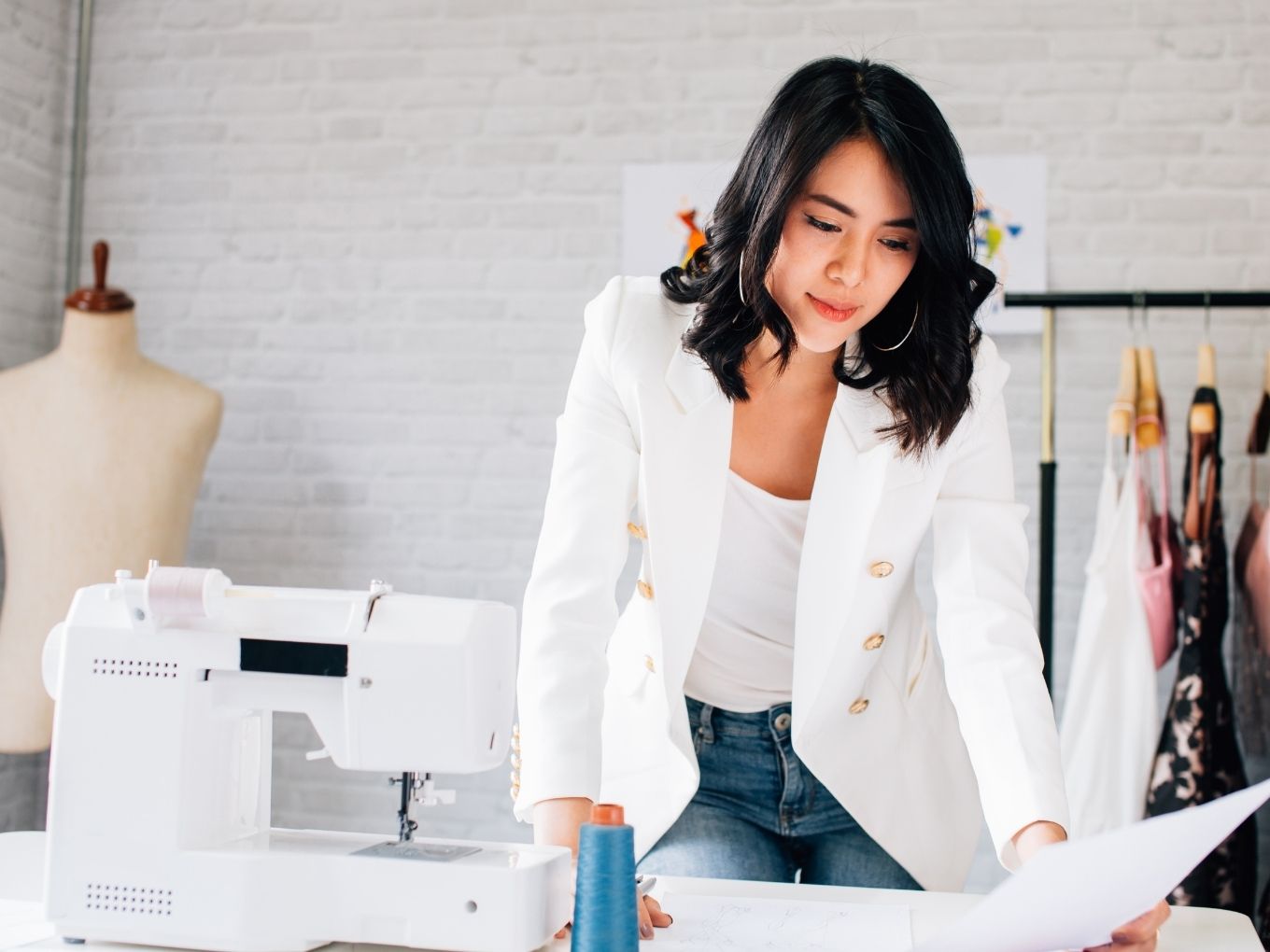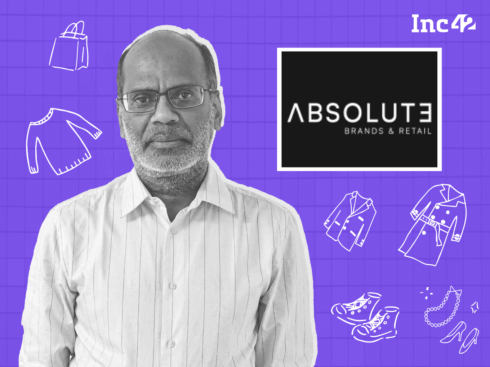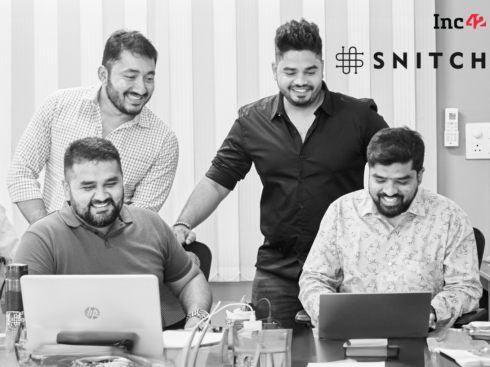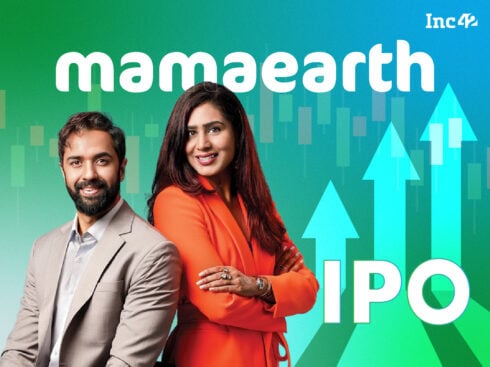
SUMMARY
Fashion produces about 10% of the world’s carbon emissions, more than international air travel and maritime shipping combined
The textile industry in India contributes over 2% to its GDP, and as of FY19, it made up 15% of export earnings
There’s huge scope for existing as well as new players in a sustainable fashion
The world of fashion is changing, and changing fast. Globally, a storm of sustainable fashion brands is rising up to challenge the heavily polluting and exploitative practices inherent to mainstream fast fashion.
In its current form, the fashion industry is one of the most polluting industries in the world. Fashion produces about 10% of the world’s carbon emissions – more than international air travel and maritime shipping combined – and is the second-largest consumer of water. It takes about 2700 litres of water to produce a simple cotton shirt, enough water for one person to drink for 3.5 years. We haven’t even started talking about the different types of pollutants it throws out into the environment.
Meanwhile, the wages working conditions of workers in the garment industry remains abysmal. According to an estimate, less than 2% of nearly 75 million garment workers across the world are paid living wages. Around three-fourths of these are women.
Is this simply the cost of clothing the world? Not really. In the last count, global clothing production is said to have doubled between 2000 and 2014, with the average consumer purchasing approximately 60% more garments every year. At the same time, about 85% of the textiles we produce end up in landfills every year. The business model of fast fashion runs on feeding the use-and-throw mentality in customers driving up consumption by producing inexpensive, poor-quality, and essentially disposable, clothes for every microtrend or micro season.
If the industry trends continue this way, fashion’s share of carbon emissions could jump to 26% by 2050. With the climate crisis looming, we simply cannot afford this. Thanks to the rising consumer consciousness, particularly in millennials and Gen-Z, there’s a rapidly growing demand for businesses to operate ethically and sustainably, caring for people and the planet along with their own profits.
As a result, new kinds of businesses in the fashion industry are emerging. Thrifting, clothes swapping and rentals are becoming immensely popular among consumers, especially after Covid-19. There has also been a boom in brands creating stylish, sustainable, and high-quality clothes with ethical supply chains.
For Indian entrepreneurs, this is a time of exciting opportunities.
The Sustainable Fashion Landscape In India
The textile industry in India contributes over 2% to its GDP. As of FY19, it made up 15% of export earnings. It also employs a considerable 4.5 crore people. While sustainable fashion is still a nascent segment in India, it has the potential to become a powerful driver of national priorities, including economic growth, job creation, and the environment. Women entrepreneurs are leading the charge for a more sustainable fashion. Like the rest of the world, Indian sustainable fashion brands are making use of Eco-textiles, natural dyes, higher-quality construction and scrap fabrics in their manufacturing process. But what sets sustainable fashion in India apart is its craft-driven approach.
New-age sustainable brands are combining age-old fabrics, crafts, and production techniques with contemporary styles to create clothes that appeal to modern sensibilities. Along with their environmentally conscious production processes, the use of crafts makes these brands more sustainable. Indian craft techniques have been developed by local communities over generations. As a result, they are inherently more resource-efficient than industrial approaches, which are transposed onto locations without much consideration for their impact on the local ecosystem.
While learning from the best of traditional craft practices, modern fashion brands are also dropping the worst. Handicrafts in India have traditionally been tied to oppressive caste and gender practices, devaluing the labour of women and artisans from marginalised castes, tribes and communities. Many sustainable fashion brands are now proactively partnering with women and marginalised craftspersons, providing them dignity through ethical working conditions and fair pay for their labour, thus empowering these communities.
In this way, they’re reinventing the nation’s rich craft heritage and struggling handicraft industry into profitable businesses, creating better livelihoods for workers while boosting domestic production. And given the global winds of change in favour of sustainable fashion, this sector can become a key driver of exports with the right policy focus.
Opportunities For New-Age Entrepreneurs
There’s huge scope for existing as well as new players in a sustainable fashion. Even after adjusting for the pandemic, the global ethical fashion market is projected to reach $8.25 Bn by 2023. A heavily fragmented market, with no single-player capturing a very large market share.
Many existing sustainable fashion brands in India successfully ship worldwide. There is immense potential for exports of both craft-driven and non-craft clothing. Within the domestic market, consumer tastes are slowly changing in favour of environmental and ethical consciousness. While there are still opportunities in luxury sustainable fashion, this market is fast becoming saturated. Instead, there’s a growing demand for sustainable fashion that’s affordable, especially as middle-class consumers are beginning to care more about environmental impact.
High-street fashion brands have the opportunity to respond to these new preferences in financially viable ways for their business. If organic or recycled raw materials are too expensive, they could opt for using deadstock/surplus fabric. Similarly, they could produce upcycled accessories and home decor. Most importantly, they could produce fewer collections of higher-quality clothes and change their branding from being ‘trend’ driven to focus on longevity.
Challenges And Speed Bumps
One of the biggest barriers facing brands in this space is supply chain consistency. This is particularly true when working with artisans and micro-enterprises located in remote areas and not used to large order volumes. Brands should plan for slightly longer lead times in the beginning, and invest in upskilling initiatives that will reap long term rewards.
Another issue is around raw material sourcing. Certain eco fabrics such as organic cotton require certifications that help establish the credibility of suppliers’ claims. However, newer fabrics such as modal – which are considered sustainable – do not have such certifications. In fact, the sustainability of modal is entirely dependent on whether kind of plantations the fibre is sourced from and the treatment of water during production. This varies widely and accordingly; modal may not always be sustainable. Brands should buy yarn or fabric from certified suppliers, and if there are no certifications, get as much information about the fibre production process before purchase.
Building Future-Proof Brands And Entrepreneurs
For brands looking to become more sustainable and entrepreneurs looking to start sustainable brands, here are a few tips:
- Start with one aspect of the value chain: This could be raw materials, production waste or packaging. It’s nearly impossible to be 100% sustainable from the get-go. Consistent, incremental steps can have a large impact.
- Be transparent with your customers: This will increase their trust in the brand and also serve as an accountability tool to remain sustainable.
- Practice inclusivity and fair practices: As a sustainability consultant, Aja Barber writes, there is no point lauding the use of organic cotton T-shirts for saving water if the same T-shirt has been made if it has been made by poorly paid workers who don’t have access to clean drinking water.


























